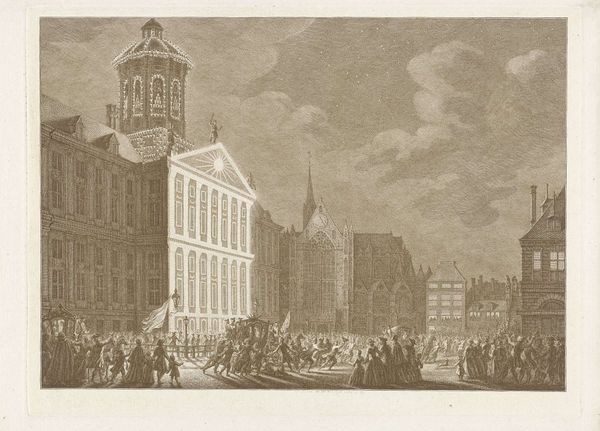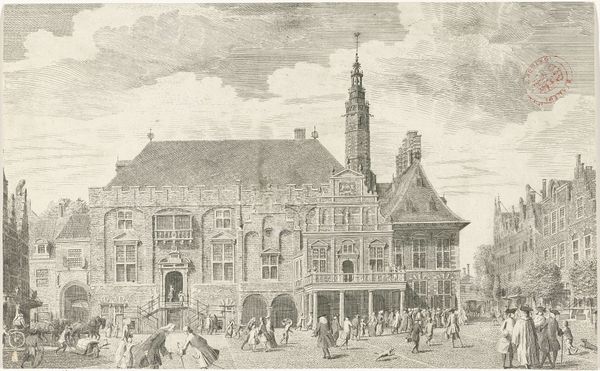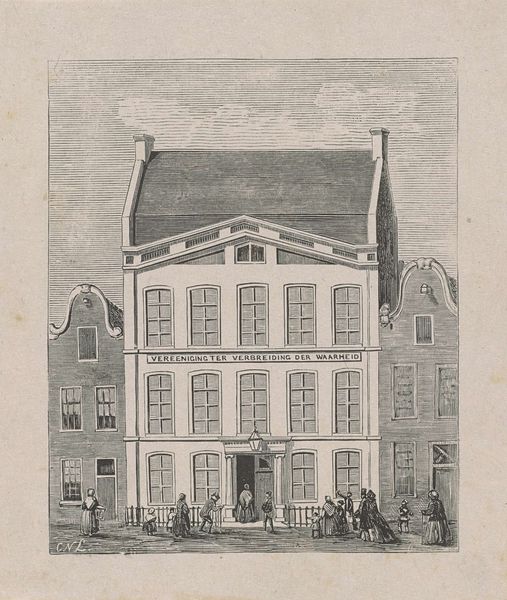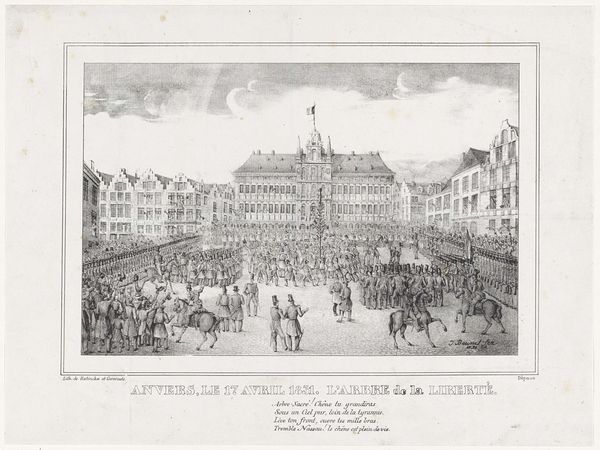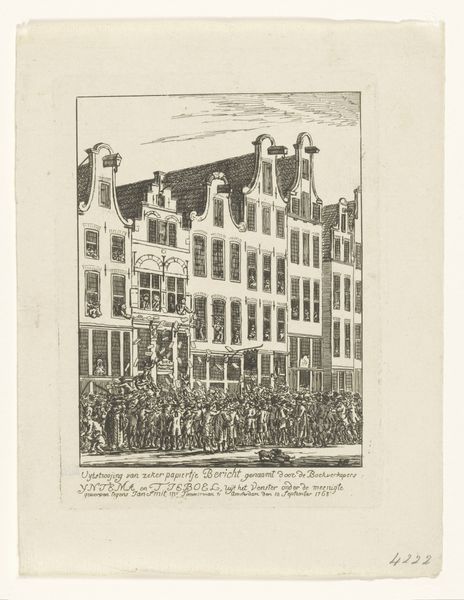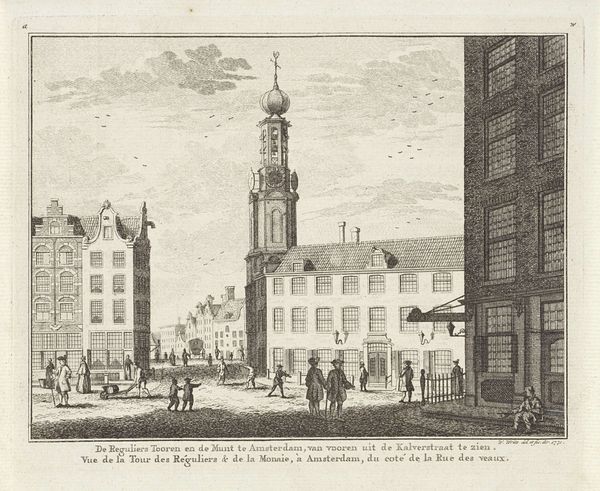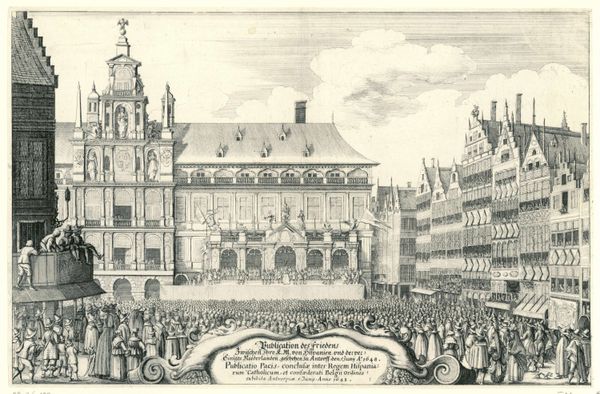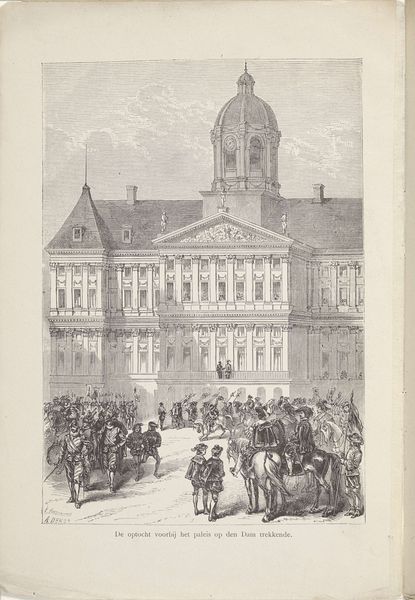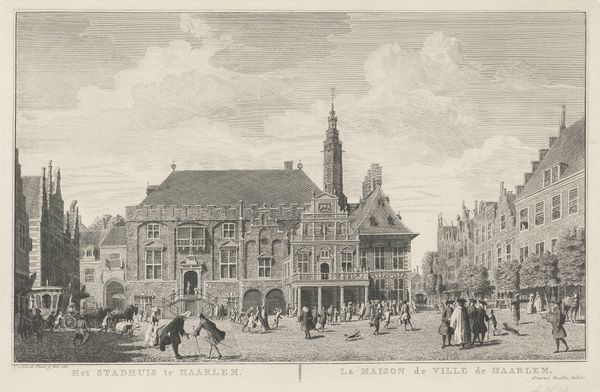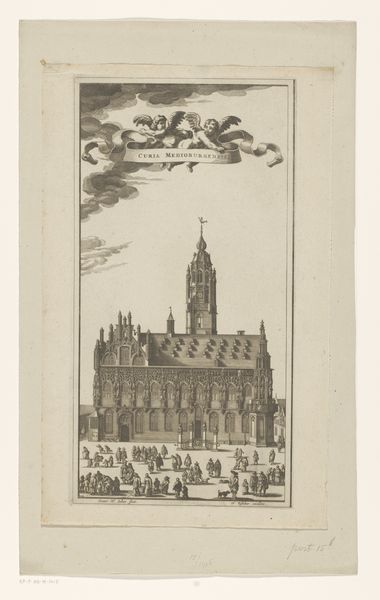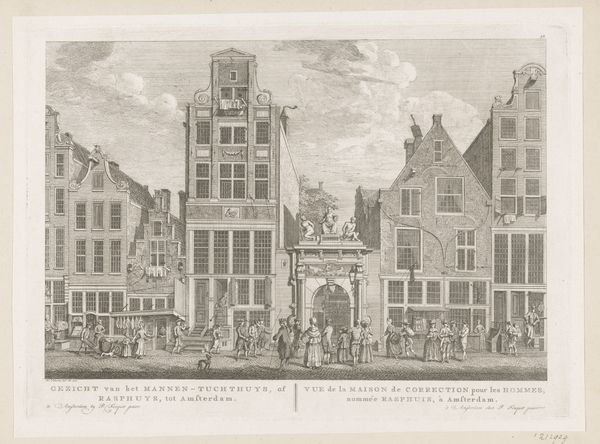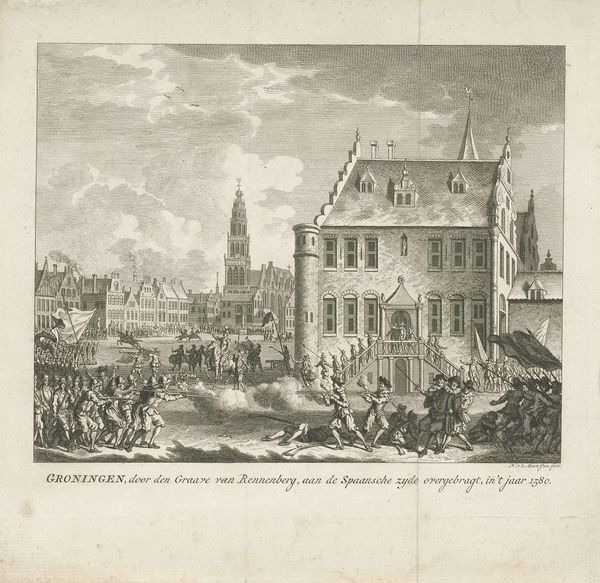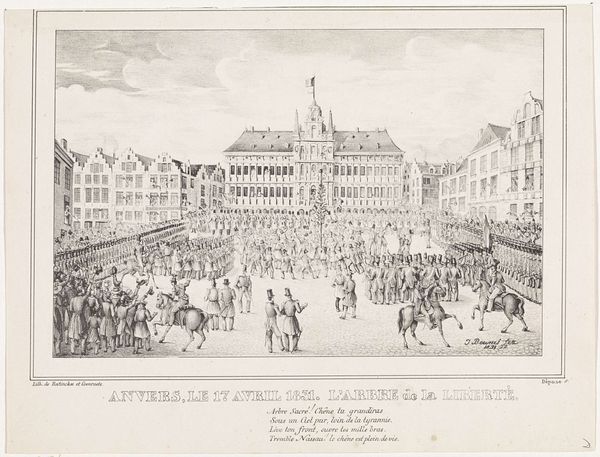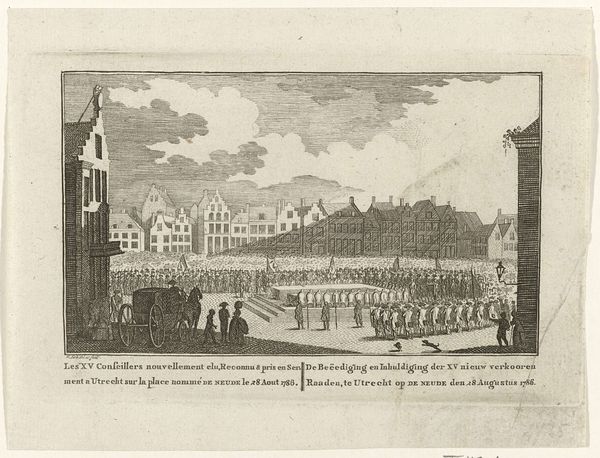
print, engraving
#
neoclacissism
# print
#
cityscape
#
history-painting
#
engraving
Dimensions: height 494 mm, width 365 mm
Copyright: Rijks Museum: Open Domain
Editor: So, this print from 1789 by Mathias de Sallieth, titled "Trouw zweren aan de stadhouder te Veere, 1787" depicts a cityscape using engraving. It feels like a carefully constructed record of a civic event, almost like propaganda. What do you make of this? Curator: From a materialist perspective, this engraving allows us to consider the socio-economic forces at play. Engravings like these were a form of mass production in their time, a means of disseminating political ideologies. Consider the labour involved in creating the plate, printing the image, and distributing it. How might these factors influence our understanding of the artwork and its intended audience? Editor: That's interesting! I hadn’t thought about the printmaking process itself as part of the meaning. Does the choice of materials -- the paper, the ink -- tell us anything about the intended audience or the value placed on the event? Curator: Precisely. The quality of the materials suggests the economic status of those commissioning and consuming such prints. The very act of producing and circulating this image was a political statement. The Neoclassical style flattens it with no dramatic gesture of personal experience. Think about how this relates to the depicted subject matter, that moment of pledging allegiance. Editor: So it's not just a historical record, but an artifact that speaks to the material conditions of its creation and the social context in which it was consumed. Thank you! It is so fascinating to see how materials and methods add another layer of interpretation! Curator: Exactly. It’s through this lens that we begin to understand the multifaceted narratives embedded within the art object. The consumption and creation are a lens on the art itself.
Comments
No comments
Be the first to comment and join the conversation on the ultimate creative platform.
